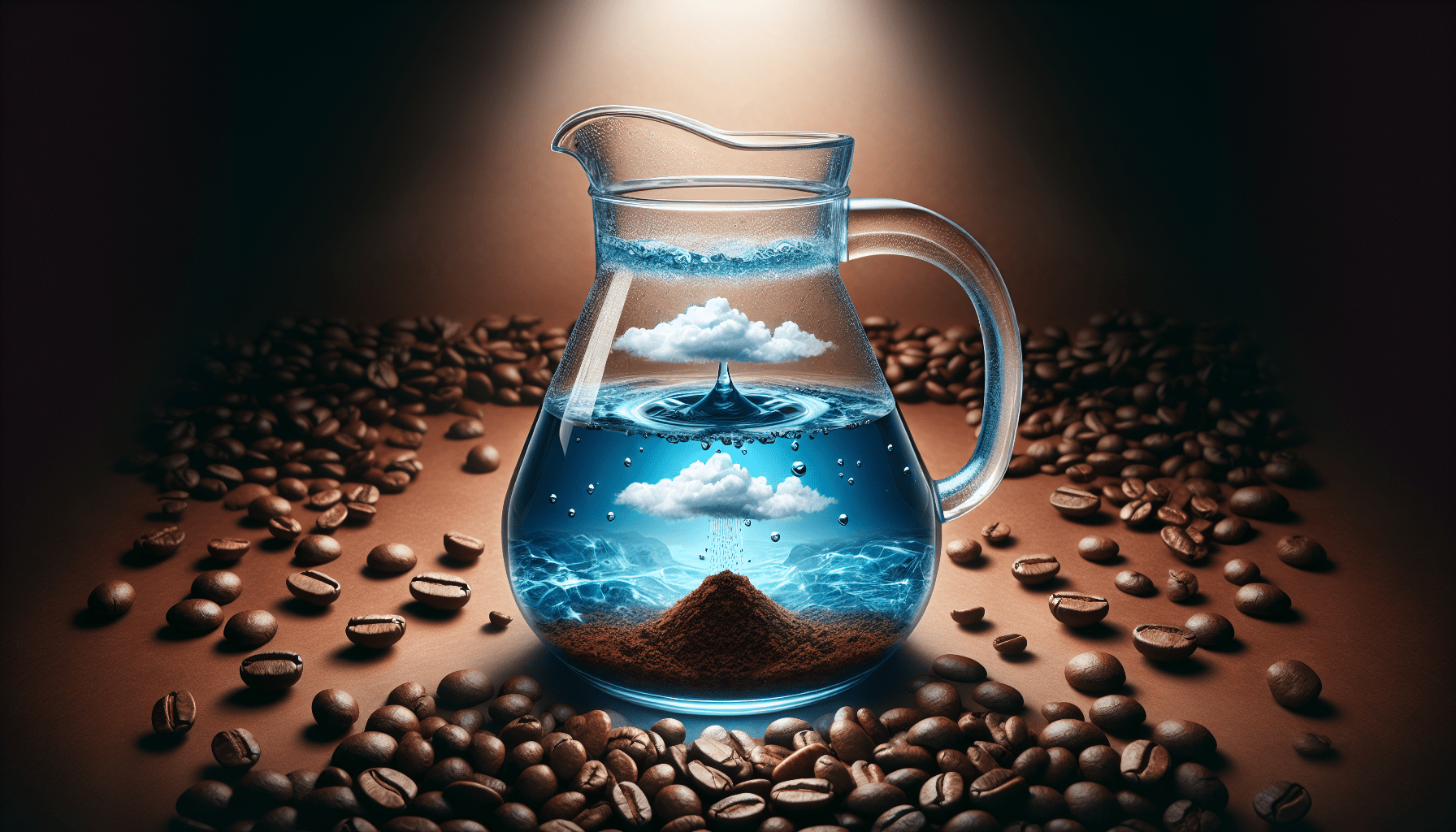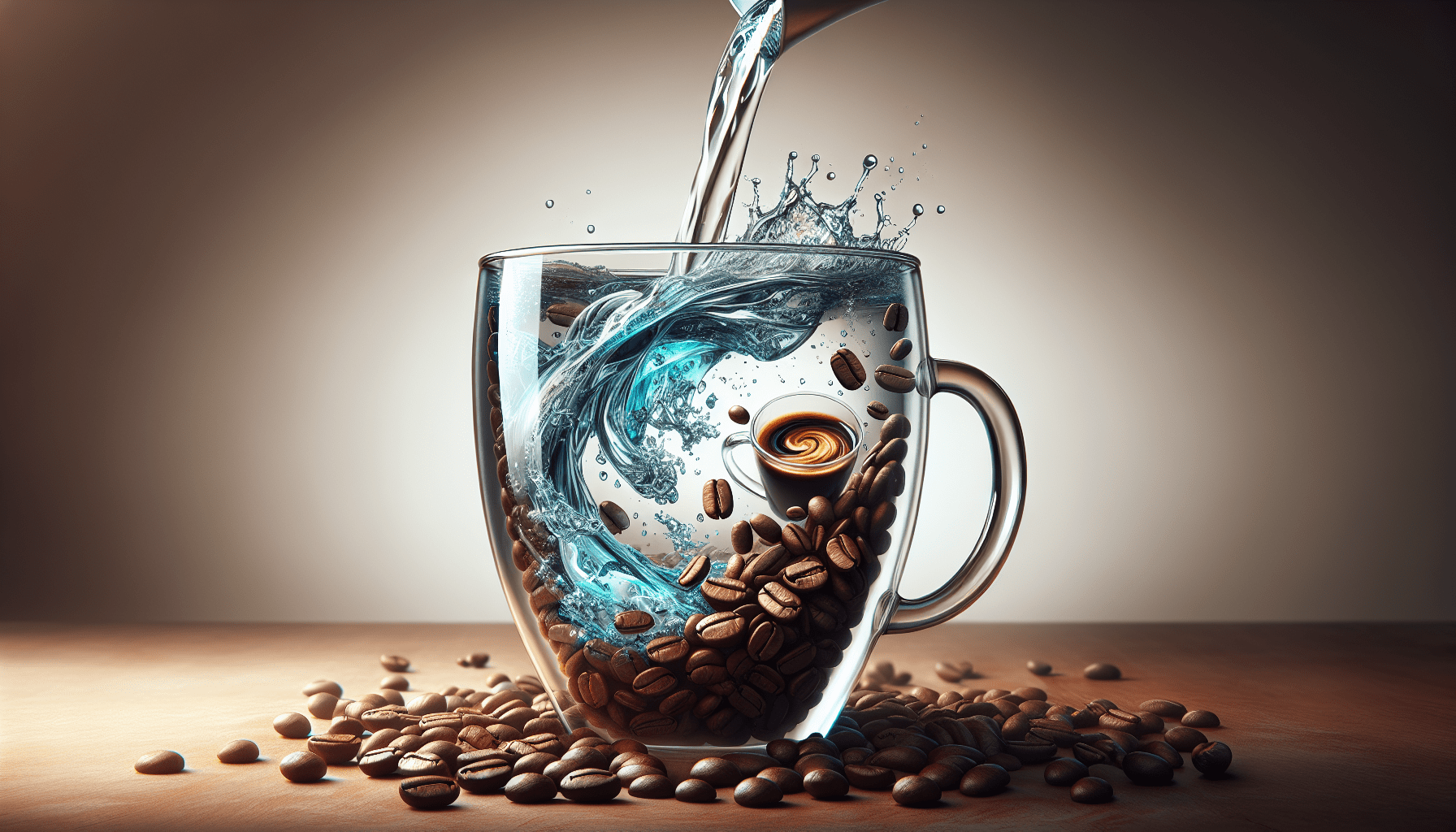Good coffee is a morning ritual for many of us. The aroma, the warmth, the smoothness – it’s the perfect way to start the day. But have you ever stopped to consider the role that water quality plays in determining the flavor of your brew? Surprisingly, the water you use can have a significant impact on the taste of your coffee. From mineral content to pH levels, the quality of the water directly influences the extraction process, ultimately affecting the overall flavor profile. So, if you’ve ever wondered why your homemade coffee tastes different from the one at your favorite cafe, it might just be the water you’re using.
Water Quality and Coffee Taste
Introduction
When it comes to brewing the perfect cup of coffee, many factors contribute to the rich and flavorful experience we all crave. While we often place a great deal of emphasis on the type of coffee beans and brewing equipment, one vital but often overlooked element that can greatly affect the taste of coffee is the quality of water we use. The composition of water, including its chemical properties and mineral content, plays a significant role in the extraction process and ultimately impacts the overall taste and aroma of our coffee. In this article, we will delve into the intricacies of water quality and its profound influence on the art of brewing exceptional coffee.
Importance of Water Quality in Brewing Coffee
Water is the essence of coffee, accounting for about 98% of its content. Therefore, it should come as no surprise that the quality of water has a substantial impact on the final product. The flavors and aromas locked within the coffee beans can only be fully unleashed and appreciated through proper extraction, and this is where water quality plays a pivotal role. High-quality water not only enhances the taste and aroma of coffee but also promotes optimal extraction, resulting in a more balanced and satisfying cup of joe.

Factors Affecting Water Quality
Several factors determine the quality of water for brewing coffee, including its chemical composition, temperature, pH level, and the presence of contaminants such as chlorine or chloramines. These factors can significantly influence the flavor, extraction, and overall quality of the coffee we enjoy.
Chemical Composition of Water and Coffee Taste
The chemical composition of water is one of the key determinants of coffee taste. The various minerals present in water can interact with the coffee compounds during extraction, leading to subtle or significant flavor changes. Magnesium and calcium, for example, contribute to the extraction of desirable flavors from the coffee grounds, enhancing the overall taste profile. On the other hand, excessive minerals like iron or sulfur can impart undesirable flavors and aromas, resulting in a less enjoyable cup of coffee.

Role of Minerals in Water
Minerals present in water play a crucial role in coffee extraction. Calcium, in particular, enhances the extraction process by promoting the breakdown of coffee compounds and releasing desirable flavors. Magnesium, on the other hand, helps in achieving the optimal balance between sour and bitter notes. These minerals bind with specific coffee compounds, allowing them to be extracted and ultimately influencing the taste of our brew.
Impact of pH on Coffee Extraction
pH, the measure of water’s acidity or alkalinity, also plays a vital role in the extraction process and subsequent coffee taste. The ideal pH range for water used in brewing coffee is typically between 6.5 and 7.5. When the water is too acidic (pH below 6.5), it can result in under-extraction, leading to a dull and weak cup of coffee. Conversely, highly alkaline water (pH above 7.5) may over-extract the coffee, resulting in a bitter and harsh taste.

The Effect of Chlorine and Chloramines on Coffee
Chlorine and chloramines are commonly used to disinfect drinking water supplies. However, their presence in water poses a significant challenge in brewing coffee. Chlorine, even in small amounts, can impart an unpleasant taste and aroma to coffee, often described as “chemical” or “bleach-like.” Chloramines, a combination of chlorine and ammonia, can also have a negative impact on coffee flavor. Therefore, it is essential to remove or neutralize these compounds before brewing to ensure a clean and enjoyable coffee experience.
Hard vs. Soft Water and Coffee Taste
Another critical consideration in water quality for brewing coffee is its hardness or softness. Hard water contains higher levels of minerals, primarily calcium and magnesium. While these minerals contribute to coffee extraction, excessive hardness can lead to issues such as over-extraction, increased bitterness, and mineral buildup in coffee-making equipment. On the other hand, soft water contains fewer minerals, which can result in under-extraction, less body, and a potentially flat taste. Achieving the ideal balance in water hardness is crucial to unlocking the full potential of our coffee beans.

Water Contamination and Its Effects
Water contamination is a significant concern when it comes to brewing coffee. Contaminants such as heavy metals, pesticides, microorganisms, and other impurities can not only jeopardize the taste and aroma of coffee but also pose health risks. In addition, water with an unusual taste or odor due to contamination can mask the delicate flavors and subtleties of the coffee, diminishing the overall enjoyment of the brew. Therefore, ensuring the purity and safety of the water used for brewing should be a top priority for coffee enthusiasts.
Water Filtration and Treatment Methods
To mitigate the potential negative effects of water quality on coffee taste, various filtration and treatment methods can be employed. Water filters, both activated carbon and reverse osmosis systems, can effectively remove chlorine, chloramines, and other impurities, providing cleaner and better-tasting water for brewing. Additionally, using water softeners or descaling agents can help manage water hardness issues, ensuring optimal extraction without compromising the flavor. It is crucial to choose the appropriate water filtration and treatment methods based on the specific water quality concerns to achieve the best possible results.
In conclusion, the quality of water used in brewing coffee is an integral part of the coffee-making process, significantly impacting taste, aroma, and overall enjoyment. Factors such as mineral content, pH, chlorine presence, water hardness, and contamination all play vital roles in determining the flavor profile of our brew. By understanding and addressing these water quality considerations through filtration and treatment methods, we can elevate our coffee experience to new heights and savor the art of a perfectly brewed cup of joe.



 using WordPress and
using WordPress and